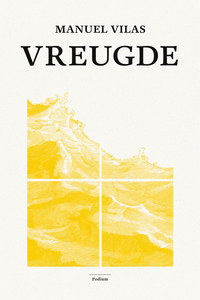In Vreugde, de opvolger van Manuel Vilas bestseller Ordesa, is de hoofdpersoon op zoek naar zichzelf en naar kleine vonkjes vreugde. In zijn tamelijk kale en moeizame bestaan valt dat nog niet mee.
Het moet een dubbel gevoel zijn geweest. Met zijn persoonlijke roman Ordesa (verschenen in 2018, een verhaal over de dood van zijn ouders en de existentiële leegte die dat tot gevolg had, behaalde schrijver Manuel Vilas zijn grootste literaire succes uit zijn carrière tot dan toe. Het boek werd een bestseller in Spanje, won diverse prijzen en door middel van de vele vertalingen gooide het ook in het buitenland hoge ogen.
Onrust
Vreugde is een vervolg op Ordesa en bevat dezelfde ingrediënten: een gescheiden schrijver van eind vijftig die beide ouders heeft verloren en zijn zoons nauwelijks ziet, en die zijn drankverslaving heeft overwonnen maar nog wel afhankelijk is van pillen om zijn kwellende angsten en gedachten en lage zelfbeeld de baas te blijven.

Met dit verschil: door het succes van de roman over zijn ouders reist de schrijver nu de hele wereld over voor lezingen, interviews en optredens. Op alle werkreizen zegt hij ja, omdat hij in een permanente staat van onrust verkeert. ‘Daarom reis ik, om te vergeten dat ik een naam heb, om mezelf niet te hoeven torsen.’
De schrijver is weliswaar opnieuw getrouwd, maar toch heeft hij geen echt ‘thuis’; ze pendelen heen en weer tussen haar beide huizen in Spanje en de Verenigde Staten. Hij is geen zoon meer, maar ook niet echt meer een vader. Hij doolt door de wereld zoals hij door zijn herinneringen doolt. Aan de voortdurende stroom herinneringen aan met name zijn ouders kan hij niet ontsnappen, net zomin als de lezer.
Plotloos
Vreugde is een poëtisch en filosofisch, plotloos boek over liefde, rouw en verlies, over tijd en herinnering, die het leven betekenis en diepte geeft. Vilas heeft een precies oog voor detail. Juist in de details toont zich het leven, meent hij. Daarom vindt hij vreugde in een magnetron en een leeg diepvriesbakje, omdat de lasagne die erin werd opgewarmd zijn zoon zo goed beviel. En ziet hij in een toilettas ‘kwetsbaarheid en tederheid’.
Geschreven in een dwingend ritme en met formuleringen vol herhalingen, als een bezwering, vormen de korte hoofdstukjes tezamen als het ware een meditatie over schoonheid, vreugde en dankbaarheid.
Hoewel Vilas de lezer meeneemt naar donkere plekken waar eenzaamheid, angst en zelfmoordgedachten geen taboe zijn, kiert er daardoor steeds weer een beetje licht naar binnen. Schoonheid geeft een gevoel van vreugde – daarin heeft de schrijver absoluut gelijk.
